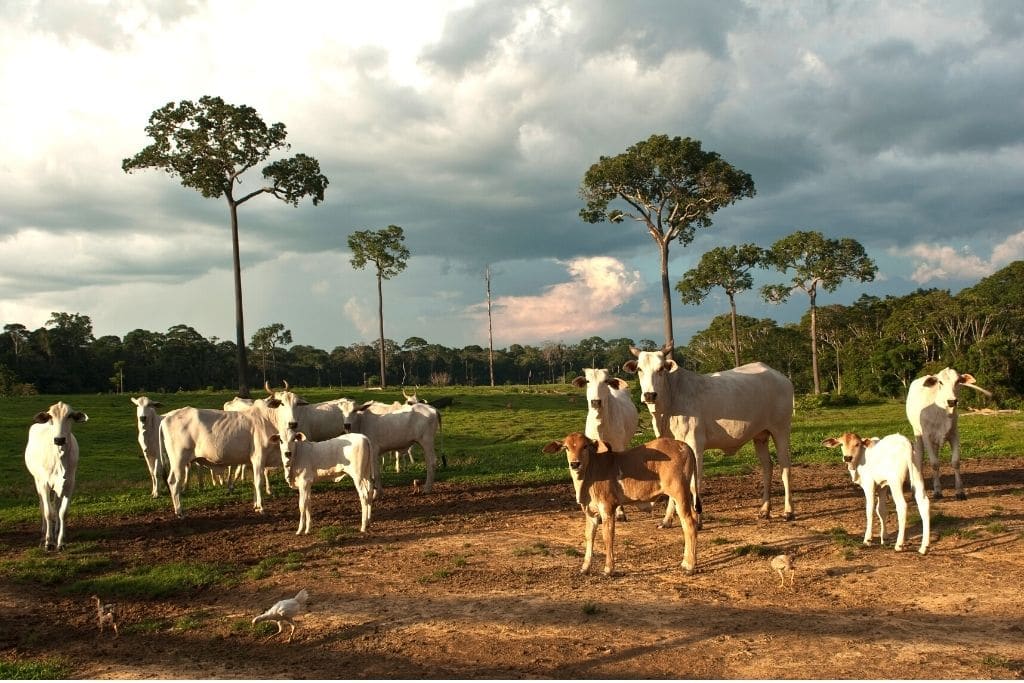Sainsbury’s and five other supermarket chains are taking action to drop beef products with ties to Brazil deforestation following investigation into “cattle laundering”.
—
Six European supermarket chains including Sainsburys, Lidl Netherlands, and Ahold Delhaize will stop selling some or all beef products sourced from Brazil after an investigation found links to deforestation in the Amazon rainforest.
The supermarkets’ decision follows after environmental campaigners Mighty Earth and NGO Repórter Brasil published research on “cattle laundering”. In the report, it alleged that JBS, the world’s largest meat packer and one of the most well-known companies responsible for deforestation, has been involved in scheme in which the company raises cattle on illegally deforested land that are moved to legitimate farms before being sent to slaughterhouses to hide its origin. The meat is then processed into various beef products such as beef jerky, corned beef and prime cuts sold at European supermarkets.
Supermarket chain Lidl Netherlands has pledged to pull all beef products originating in South America from 2022 onwards, while Sainsbury’s said it would no longer source its own brand of corned beef from Brazil. Carrefour in Belgium and French retailer Auchan are removing beef jerky products made by a JBS joint venture from their stores.
The investigation and subsequent response by supermarkets come just months after more than 140 countries committed to end and reverse deforestation by 2030 at the COP26 climate summit. Meat production is the single biggest driver of deforestation, in which it is responsible for 41% of global deforestation every year. The meat industry requires substantial pasture lands for cattle in order to keep up with global demand for beef.
You might also like: 12 Major Companies Responsible for Deforestation
At least one third of global deforestation occurs in the Amazon rainforest, which has experienced some of its worst rates including a 15-year high over the past 12 months under Brazilian president Jair Bolsonaro’s administration.
The world’s forests are natural carbon sinks, where they have the ability to absorb and store carbon dioxide from the atmosphere. Protecting and preserving tropical forests are crucial in mitigating climate change.
JBS disputed the findings from the investigation and said that it has “no tolerance for illegal deforestation, forced labour, misuse of indigenous lands, conservation units or violations of environmental embargoes”, adding that the research mentioned only five out of 77,000 direct JBS suppliers and that those suppliers met the company’s policies at the time of purchase. It also claimed to have blocked more than 14,000 supplies for failing to comply with its policies.
“We have made extensive investments in a new blockchain-enabled platform to overcome this challenge and achieve a completely illegal deforestation-free supply chain by 2025,” the company said.
The company added that monitoring indirect suppliers had been a challenge, and announced it would launch a “green platform” capable of doing so by 2025.


















